#frederick i of naples
Explore tagged Tumblr posts
Text


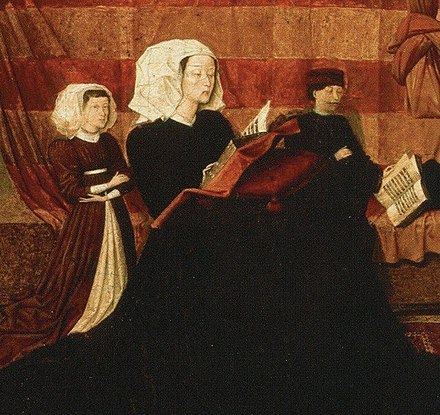


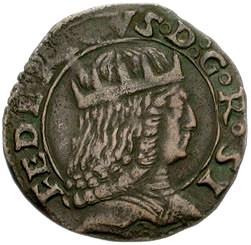


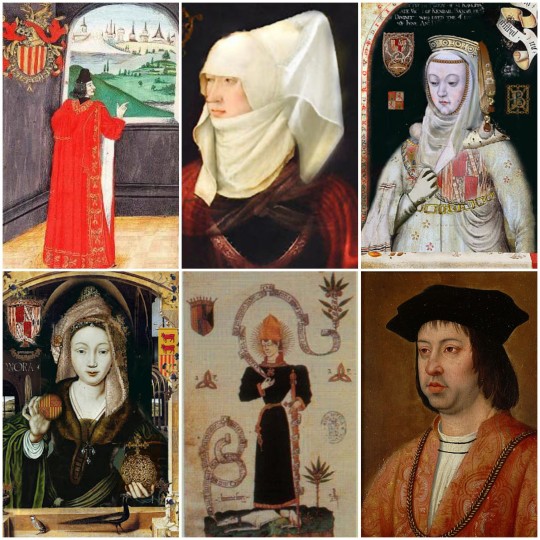
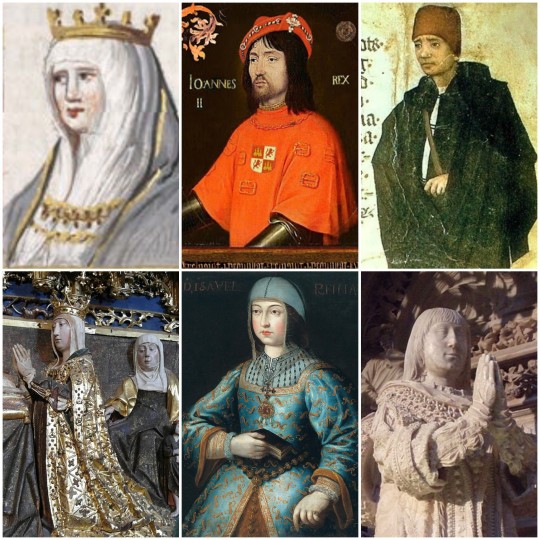
The Bastard Kings and their families
This is series of posts are complementary to this historical parallels post from the JON SNOW FORTNIGHT EVENT, and it's purpouse to discover the lives of medieval bastard kings, and the following posts are meant to collect portraits of those kings and their close relatives.
In many cases it's difficult to find contemporary art of their period, so some of the portrayals are subsequent.
1) Ferdinand I of Naples ( 1424 – 1494), son of Alfonso V of Aragon and Giraldona Carlino
2) Alfonso V of Aragon (1396 – 1458), son of Ferdinand I of Aragon and his wife Leonor de Albuquerque
3) Isabella of Taranto or Clermont (c. 1424 – 1465), daughter of Tristan of Clermont and Catherine of Taranto
4) Alfonso II of Naples ( 1448 – 1495), son of Ferdinand I of Naples and his wife Isabella of Taranto
5) Eleanor of Naples (1450 – 1493) & Beatrice of Naples (1457 – 1508), daughters of Ferdinand I of Naples and his wife Isabella of Taranto
6) Frederick I of Naples (1452 – 1504), son of Ferdinand I of Naples and his wife Isabella of Taranto
7) Ferdinand of Aragon and Guardato (before 1494–1542), son of Ferdinand I of Naples and Diana Guardato
8) Eleanor of Aragon (1402 – 1445), daughter of Ferdinand I of Aragon and Leonor de Albuquerque
9) I. John II of Aragon & Navarre (1398- 1479), son of Ferdinand I of Aragon and his wife Leonor de Albuquerque
II. Blanche I of Navarre (1385-1441), daughter of Charles III of Navarre and his wife Eleanor of Castile
III. Blanche II of Navarre (1424 – 1464), daughter of John II of Aragon and his wife Blanche I of Navarre
IV. Eleanor I of Navarre (1426 - 1479), daughter of John II of Aragon and his wife Blanche I of Navarre
V. Charles of Viana/ Charles IV of Navarre (1421- 1461), son of John II of Aragon and his wife Blanche I of Navarre
VI. Ferdinand II of Aragon & V of Castile (1452-1516), son of John II of Aragon and his wife Juana Enríquez
10)
I. Mary of Aragon ( 1403- 1445), daughter of Ferdinand I of Aragon and his wife Leonor de Albuquerque
II. John II of Castile (1405- 1454), son of Henry III of Castile and his wife Catherine of Lancaster
III. Henry IV of Castile (1425-1474), son of John II of Castile and his wife Mary of Aragon
IV. Isabella of Portugal (1428 - 1496), daughter of John of Portugal and Isabella of Barcelos
V. Isabella I of Castile (1451-1504), daughter of John II of Castile and his wife Isabella of Portugal
VI. Alfonso of Castile (1453-1468), son of John II of Castile and his wife Isabella of Portugal
#jonsnowfortnightevent2023#asoiaf#a song of ice and fire#canonjonsnow#day 10#echoes of the past#historical parallels#medieval bastard kings#bastard kings and their families#ferdinand i of naples#alfonso v of aragon#isabella of taranto#alfonso ii of naples#eleanor of naples#beatrice of naples#frederick i of naples#ferdinand of aragon and guardato#eleanor of aragon#john ii of aragon#blanche i of navarre#blanche ii of navarre#eleanor i of navarre#charles of viana#ferdinand ii of aragon#mary of aragon#john ii of castile#henry iv of castile#isabella of portugal#isabella i of castile#alfonso of castile
10 notes
·
View notes
Text



"Forgive me. I knew [Frederick of Naples] wanted to be king but I did not know that he would confine such a splendid witch as you."
HOLLIDAY GRAINGER as LUCREZIA BORGIA THE BORGIAS — 3.08: Tears of Blood
#this is like the darkest scene ever actually it was too difficult to color#loveee how neil jordan leaned into the poisoning enchanting witch route for lucrezia's story#lucrezia borgia#the borgias#holliday grainger#perioddramaedit#weloveperioddrama#tvedit#cinemapix#tvarchive#femalegifsource#perioddramasource#dailywomen#ladiesofcinema#theborgiasedit#lucreziaborgiaedit#tusertha#tuserava#dailyflicks#by jen
628 notes
·
View notes
Text
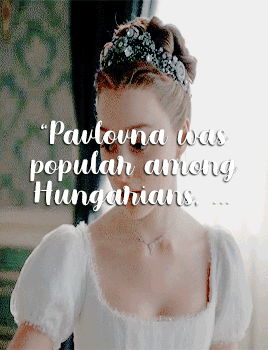
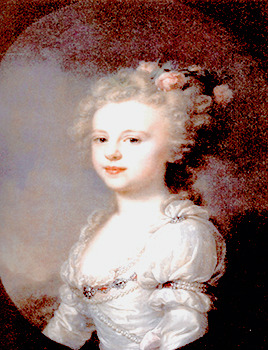
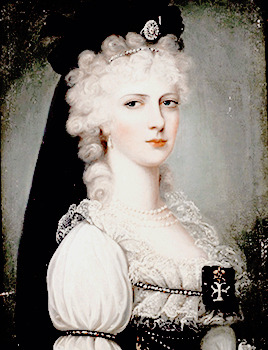

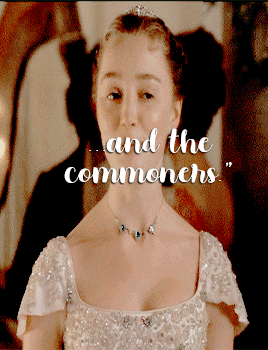
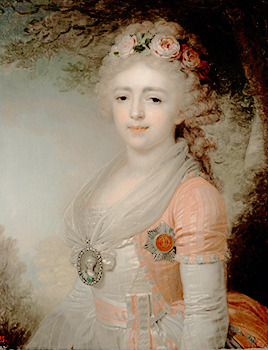
"In 1799, three years after her failed betrothal with the King of Sweden, another marital project originated for Alexandra. Previously in 1798, Dukes Ferdinand Augustus and Alexander Frederick of Württemberg who were the brothers of the Empress Maria Feodorovna, arrived in St. Petersburg to serve in the Russian army. They expressed the interest of Austria to join with Russia in a coalition against the rising power of the French Republic and Napoleon, and to cement this alliance, it was decided to arrange a marriage between Alexandra and Archduke Joseph of Austria, Palatine (Governor) of Hungary and a younger brother of Francis II, Holy Roman Emperor. Archduke Joseph personally came to Russia to see his bride. The meeting between them was successful. In mid-February 1799 the betrothal ball was held. Later, a marriage contract was signed in which Alexandra would be allowed to kept her Russian Orthodox faith. In October, Count Fyodor Rostopchin wrote:
"Believe me, that's not good started to strengthen the alliance with the Austrian court by ties of blood... Of all the sisters she will be given the least successful marriage. She will have nothing to wait for, and her children even more so."
On 25 September 1799, a decree was published about the royal title of Alexandra. In Russia, she was referred to as "Her Imperial Highness Grand Duchess the Archduchess of Austria" with the French prefix of "Palatine d'Hongrie". The wedding took place on 30 October 1799 at Gatchina Palace, one week after the wedding of her sister Elena. To celebrate both events, poet Gavrila Derzhavin wrote the ode "the wedding celebrations of 1799". On 21 November the couple went to Austria. Countess Varvara Golovina remembered that Alexandra was sad to leave Russia, and her father Emperor Paul I "constantly repeated, would not see her since her sacrifice." According to Alexandra's confessor, Andrei Samborski, Alexandra was given a cold reception in Vienna. However, other sources offer a different view. Queen Maria Carolina of Naples (the Emperor's mother-in-law) and her daughters arrived in Vienna in August 1800 for a long stay. Maria Carolina's daughter, Princess Maria Amalia of Naples, wrote in her journal that on 15 August the Queen and her daughters were introduced to Alexandra, whom she described as "very beautiful". Maria Amalia and Alexandra became friends during this time; and the Princess of Naples wrote in her journal that the Russian Grand Duchess and her husband had a friendly relationship with the rest of the imperial family and took part in the family gatherings, parties and balls in Vienna, which contrasts with the version given by Andrei Samborski. For instance, in January 1801, Maria Amalia wrote in her journal that the imperial family used to attend balls in Archduke Joseph's residence in Vienna, where "beautiful Alexandra, always serious and sad, has a magnificent household." When she was presented to Emperor Francis II, she reminded him of his first wife Elisabeth of Württemberg, who was her maternal aunt; this caused the jealousy of Empress Maria Theresa, Francis II's second wife, who also was envious of Alexandra's beauty and fine jewelry. Imperial confessor Andrew Samborski wrote:
"Remembering the happy cohabitation with her led him (the Emperor) in extreme confusion of mind which afflicted the heart of the Empress, his present wife. After this, she became in the innocent victim of the Empress' implacable vengeance...The Empress not forgotten and humiliated her parents and siblings when she called them a family of freaks, due to the treatment that Grand Duke Constantine gave to his wife."
Once, Alexandra turned up to a ball beautifully dressed, with magnificent jewellery. The Empress was incensed at being upstaged by the Archduchess, and ordered her to remove her jewellery, and also told her that she could no longer wear them. Heeding her instructions, Alexandra only decorated her hair with flowers when she attended a play some time later. The flowers highlighted her beauty, leading her to be applauded and being given a standing ovation, making Maria Theresa even more furious. Archduke Joseph could not protect his wife from these attacks. Furthermore, her Eastern Orthodox faith aroused the hostility of the Roman Catholic Austrian court, who urged her to convert. Pavlovna was popular among Hungarians, both the nobles and the commoners. According to the legend, it was her suggestion to add the color green as the third color to the flag of Hungary. Hungarians had been using red and silver, then red and green as their national colors for centuries at the time. However, in the late 18th century, a third color was proposed to be added to the flag, to follow the style of the French tricolor. Pavlovna suggested green as a symbol for hope. By the mid-19th century, the red-white-green Hungarian tricolor became widespread.
Wikipedia of Grand Duchess Alexandra Pavlovna.
87 notes
·
View notes
Text
I feel like I could make a neat fic series out of the Usher kids' name meanings
Like a series of character studies through the lens of their names' etymologies.
FREDERICK: Peaceful ruler. Control freaks shouldn't be spineless, it's awfully frustrating for them. He wants to be in charge but is a conflict avoidant suck-up, insecure and petty. A peace-time king, no glory to his name, inheriting from a warrior and a sorceress who fought and bit and clawed. Under real challenge, he crumbles. A peace-time king becomes known from one of two things: that which they build and that which they heal. A peace-time king who is sung about? Bridge-builders, feeders of the poor; castle-builders, patrons of the arts; church-builders, tenders of the sick. But Frederick does not focus on the kingdom that has already been built, on the legacy to be preserved. Instead he longs for new lands to conquer, and new legacies to write. Outside his castle gates, the poor starve and the sick die and the artists are forced to take new jobs. I weep for bridges never built.
TAMERLANE: Iron. Cold and sharp and inflexible. A sword, a gun, a railroad track, an imposing bridge, an unassailable gate. She thinks she's invincible, but impurities and brittleness remain: she is not yet steel and ultimately never became steel. In the end, the fire does not cleanse or forge her: she simply melts away. We inherited iron from the dying stars of eons ago: it is in our blood, it gives us energy and strength and without we waste away to nothing. This is actually a boy's name, which is FASCINATING. How many women in history were buried beneath the legacies of their fathers and brothers and sons? So she hardened and sharpened and tried to prove herself.
VICTORINE: Victory. Locked in competition with her siblings, particularly Camille. She does whatever it takes to "win": arguments, pissing contests, "at life", against death. When Roderick reveals his CADASIL diagnosis, Victorine is the weapon he and Madeline attempt to wield against the disease, as if she can "beat" the deal they struck. She constantly tries to position herself as allied with Tammy and Frederick, on the "winning" team, on the side of the "legitimate" children. She lies, she cheats, and refuses to give her medals back when she's caught. Her nickname, 'Vic', is also cop show slang for 'victim'. She thinks these things happen TO her, not BECAUSE of her...but all of the kids are Roderick and Madeline's victims. He ruined her. Like he ruined all of them. Pyrrhic Victory indeed.
CAMILLE: This name can mean "perfect" or it can mean "acolyte", and either one can work, but I lean more towards the second meaning. A young initiate into a cult (here meaning the organized followers of a particular god, not the Lifton style destructive cult) there to spread the myth and carry on the traditions. She is the keeper of secrets and the teller of stories, isolated from the outside world, steeped in ritual for ritual's sake. Priests and priestesses may have employed psychedelic drugs and illusionist tricks to awe and entertain their followers or indue holy visions. Female cult initiates were often unmarried priestesses: either through widowhood or refusing to marry when young. Mystery cults were hidden or secret traditions, often focused on mystical re-interpretation of the mainstream tradition.
NAPOLEON: So the best translation for this name that we have is "Lion of Naples" or "Lion of the New City". Focusing on the "Lion" part, lions are social and lazy, most active at night. Males orbit the periphery while females form the heart of the unit. Male lions hunt alone, often as ambush predators, but general misconception is that they do not hunt at all, due to "failing" at it, compared to females. Furthermore, male lions will form "coalitions" with other males as opposed to priding up with females and cubs (Asiatic lions in particular are prone to this) and lions are one of the primary species in which we have observed bisexuality among males. Finally, lions make great dads and Leo is one of the only siblings who shows genuine grief over the family's losses.
PROSPERO: Prosperity or Fortunate. His name is symbolic of the changing tides of fortune, and is a reference to Fortunado itself. He was only 16 when he became a legitimized heir. That's a hard age to adjust to all that. He is gluttonous and lustful, soaking up every little bit of the privilege his family money gives him. What is the point of gull eggs, exactly? He is blessed with beauty: so much of it that even Verna comments on it. He assumes his blessings will never run out, and plays with fire by attempting to commit mass blackmail and ignoring all the red flags about the party venue, yet, at the same time? He thinks the world still owes him something more. Everything must be handed to him. It is his birth right, all of it. Earning it is for the unlucky: he is blessed.
#the fall of the house of usher#tfothou#tamerlane usher#frederick usher#prospero usher#napoleon usher#camille l'espanaye#victorine lafourcade
8 notes
·
View notes
Text

Portrait of Charles of Bourbon
Artist: Jean Ranc (French, 1674–1735)
Title: El infante Carlos de Borbón (Futuro Carlos III de España)
Date: 1725
Medium: Oil on Canvas
Collection: Royal Palace of Madrid, Madrid, Spain
Charles III of Spain
Charles III of Spain ( Madrid , 20 January 1716 – Madrid, 14 December 1788), called " the Politician " or " the Best Mayor of Madrid ", was King of Spain from 1759 until his death in 1788; Duke of Parma and Piacenza —as Charles I— between 1731 and 1735; and King of Naples —as Charles VII— and of Sicily —as Charles V— between 1734 and 1759.
Carlos was the third son of Philip V to reach adulthood and the first he had with his second wife, Isabel Farnesio , so it was his half-brothers Luis I and Fernando VI who initially succeeded their father. Their death without issue would lead to Carlos occupying the Spanish throne.
Charles served the family policy as a piece in the struggle to regain Spanish influence in Italy: he initially inherited the duchies of Parma and Piacenza from his mother in 1731; but later, when Philip V reconquered the Kingdom of Naples and Sicily in the course of the War of the Polish Succession (1733–38), he became king of those territories under the name of Charles VII. He married in 1738 Maria Amalia of Saxony , daughter of Frederick Augustus II , Duke of Saxony and Lithuania and King of Poland .
#portrait#charles of bourbon#charles iii#spanish king#18th century painting#french painter#european#oil on canvas#spanish culture#history#costume#adolescent#wig
8 notes
·
View notes
Text
Against Jesters Who Defame and Insult / Contra Jogulatores Obloquentes: The Nobel Prize Lecture
Dario Fo, 7 December 1997
“Against jesters who defame and insult” – Law issued by Emperor Frederick II (Messina 1221), declaring that anyone may commit violence against jesters without incurring penalty or sanction
The drawings I'm showing you are mine. Copies of these, slightly reduced in size, have been distributed among you.
For some time it's been my habit to use images when preparing a speech: rather than write it down, I illustrate it. This allows me to improvise, to exercise my imagination – and to oblige you to use yours.
As I proceed, I will from time to time indicate to you where we are in the manuscript. That way you won't lose the thread. This will be of help especially to those of you who don't understand either Italian or Swedish. English-speakers will have a tremendous advantage over the rest because they will imagine things I've neither said nor thought. There is of course the problem of the two laughters: those who understand Italian will laugh immediately, those who don't will have to wait for Anna [Barsotti]'s Swedish translation. And then there are those of you who won't know whether to laugh the first time or the second. Anyway, let's get started.

Ladies and gentlemen,
Ladies and gentlemen, the title I've selected for this little chat is "contra jogulatores obloquentes", which you all recognize as Latin, mediaeval Latin to be precise. It's the title of a law issued in Sicily in 1221 by Emperor Frederick II of Swabia, an emperor "anointed by God", who we were taught in school to regard a sovereign of extraordinary enlightenment, a liberal. "Jogulatores obloquentes" means "jesters who defame and insult". The law in question allowed any and all citizens to insult jesters, to beat them and even – if they were in that mood – to kill them, without running any risk of being brought to trial and condemned. I hasten to assure you that this law no longer is in vigour, so I can safely continue.
Like I said, I applaud and concur with my friends.
Friends of mine, noted men of letters, have in various radio and television interviews declared: "The highest prize should no doubt be awarded to the members of the Swedish Academy, for having had the courage this year to award the Nobel Prize to a jester." I agree. Yours is an act of courage that borders on provocation.
It's enough to take stock of the uproar it has caused: sublime poets and writers who normally occupy the loftiest of spheres, and who rarely take interest in those who live and toil on humbler planes, are suddenly bowled over by some kind of whirlwind.
These poets had already ascended to the Parnassian heights when you, through your insolence, sent them toppling to earth, where they fell face and belly down in the mire of normality.
Insults and abuse are hurled at the Swedish Academy, at its members and their relatives back to the seventh generation. The wildest of them clamour: "Down with the King … of Norway!". It appears they got the dynasty wrong in the confusion.
(At this point you may turn the page. As you see there is an image of a naked poet bowled over by a whirlwind.)
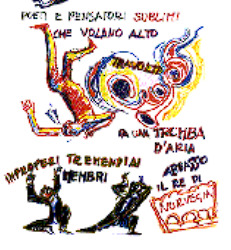
Some landed pretty hard on their nether parts. There were reports of poets and writers whose nerves and livers suffered terribly. For a few days thereafter there was not a pharmacy in Italy that could muster up a single tranquillizer.
But, dear members of the Academy, let's admit it, this time you've overdone it. I mean come on, first you give the prize to a black man, then to a Jewish writer. Now you give it to a clown. What gives? As they say in Naples: pazziàmme? Have we lost our senses?
Also the higher clergy have suffered their moments of madness. Sundry potentates – great electors of the Pope, bishops, cardinals and prelates of Opus Dei – have all gone through the ceiling, to the point that they've even petitioned for the reinstatement of the law that allowed jesters to be burned at the stake. Over a slow fire.
(This is where we are now [indicates a page].)
On the other hand I can tell you there is an extraordinary number of people who rejoice with me over your choice. And so I bring you the most festive thanks, in the name of a multitude of mummers, jesters, clowns, tumblers and storytellers.
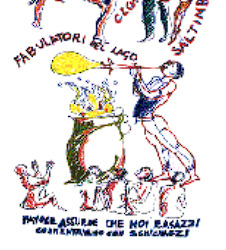
And speaking of storytellers, I mustn't forget those of the small town on Lago Maggiore where I was born and raised, a town with a rich oral tradition.
"But the cliff dwellers wouldn't listen to them, they even laughed and made fun of them: 'You think you're pretty smart, trying to scare us into running away from our houses and our land so you can grab them instead. But we're not that stupid.'
They were the old storytellers, the master glass-blowers who taught me and other children the craftsmanship, the art, of spinning fantastic yarns. We would listen to them, bursting with laughter – laughter that would stick in our throats as the tragic allusion that surmounted each sarcasm would dawn on us. To this day I keep fresh in my mind the story of the Rock of Caldé.
"Many years ago", began the old glass-blower, "way up on the crest of that steep cliff that rises from the lake there was a town called Caldé. As it happened, this town was sitting on a loose splinter of rock that slowly, day by day, was sliding down towards the precipice. It was a splendid little town, with a campanile, a fortified tower at the very peak and a cluster of houses, one after the other. It's a town that once was and that now is gone. It disappeared in the 15th century.
"'Hey', shouted the peasants and fishermen down in the valley below. 'You're sliding, you'll fall down from there'.
"So they continued to prune their vines, sow their fields, marry and make love. They went to mass. They felt the rock slide under their houses but they didn't think much about it. 'Just the rock settling. Quite normal', they said, reassuring each other.
"The great splinter of rock was about to sink into the lake. 'Watch out, you've got water up to your ankles', shouted the people along the shore. 'Nonsense, that's just drainage water from the fountains, it's just a bit humid', said the people of the town, and so, slowly but surely, the whole town was swallowed by the lake.
"Gurgle … gurgle … splash … they sink …. houses, men, women, two horses, three donkeys … heehaw … gurgle. Undaunted, the priest continued to receive the confession of a nun: 'Te absolvi … animus … santi … guurgle … Aame … gurgle …' The tower disappeared, the campanile sank with bells and all: Dong … ding … dop … plock …
Disturbing though it may be, there's no denying that a tale like this still has something to tell us.
"Even today", continued the old glass-blower, "if you look down into the water from that outcrop that still juts out from the lake, and if in that same moment a thunderstorm breaks out, and the lightning illuminates the bottom of the lake, you can still see – incredible as it may seem! – the submerged town, with its streets still intact and even the inhabitants themselves, walking around and glibly repeating to themselves: 'Nothing has happened'. The fish swim back and forth before their eyes, even into their ears. But they just brush them off: 'Nothing to worry about. It's just some kind of fish that's learned to swim in the air'.
"'Atchoo!' 'God bless you!' 'Thank you … it's a bit humid today … more than yesterday … but everything's fine'. They've reached rock bottom, but as far as they're concerned, nothing has happened at all."
I repeat, I owe much to these master glass-blowers of mine, and they – I assure you – are immensely grateful to you, members of this Academy, for rewarding one of their disciples.
(While you applaud, I'll have a drink of water. [Turning to the interpretter:] Would you like some?
And they express their gratitude with explosive exuberance. In my
home town, people swear that on the night the news arrived that one of their own storytellers was to be awarded the Nobel Prize, a kiln that had been standing cold for some fifty years suddenly erupted in a broadside of flames, spraying high into the air – like a fireworks finale – a myriad splinters of coloured glass, which then showered down on the surface of the lake, releasing an impressive cloud of steam.
It's important that you talk among yourselves while we drink, because if you try to hear the gurgle gurgle gurgle the water makes as we swallow we'll choke on it and start coughing. So instead you can exchange niceties like "Oh, what a lovely evening it is, isn't it?"
Above all others, this evening you're due the loud and solemn thanks of an extraordinary master of the stage, little-known not only to you and to people in France, Norway, Finland … but also to the people of Italy. Yet he was, until Shakespeare, doubtless the greatest playwright of renaissance Europe. I'm referring to Ruzzante Beolco, my greatest master along with Molière: both actors-playwrights, both mocked by the leading men of letters of their times. Above all, they were despised for bringing onto the stage the everyday life, joys and desperation of the common people; the hypocrisy and the arrogance of the high and mighty; and the incessant injustice. And their major, unforgivable fault was this: in telling these things, they made people laugh. Laughter does not please the mighty.
End of intermission: we turn to a new page, but don't worry, it'll go faster from here.)
Ruzzante, the true father of the Commedia dell'Arte, also constructed a language of his own, a language of and for the theatre, based on a variety of tongues: the dialects of the Po Valley, expressions in Latin, Spanish, even German, all mixed with onomatopoeic sounds of his own invention. It is from him, from Beolco Ruzzante, that I've learned to free myself from conventional literary writing and to express myself with words that you can chew, with unusual sounds, with various techniques of rhythm and breathing, even with the rambling nonsense-speech of the grammelot.
In the past couple of months, Franca and I have visited a number of university campuses to hold workshops and seminars before young audiences. It has been surprising – not to say disturbing – to discover their ignorance about the times we live in. We told them about the proceedings now in course in Turkey against the accused culprits of the massacre in Sivas. Thirty-seven of the country's foremost democratic intellectuals, meeting in the Anatolian town to celebrate the memory of a famous mediaeval jester of the Ottoman period, were burned alive in the dark of the night, trapped inside their hotel. The fire was the handiwork of a group of fanatical fundamentalists that enjoyed protection from elements within the Government itself. In one night, thirty-seven of the country's most celebrated artists, writers, directors, actors and Kurdish dancers were erased from this Earth.
Allow me to dedicate a part of this prestigious prize to Ruzzante. A few days ago, a young actor of great talent said to me: "Maestro, you should try to project your energy, your enthusiasm, to young people. You have to give them this charge of yours. You have to share your professional knowledge and experience with them". Franca – that's my wife – and I looked at each other and said: "He's right". But when we teach others our art, and share this charge of fantasy, what end will it serve? Where will it lead?
Thousands of students listened to us. The looks in their faces spoke of their astonishment and incredulity. They had never heard of the massacre. But what impressed me the most is that not even the teachers and professors present had heard of it. There Turkey is, on the Mediterranean, practically in front of us, insisting on joining the European Community, yet no one had heard of the massacre. Salvini, a noted Italian democrat, was right on the mark when he observed: "The widespread ignorance of events is the main buttress of injustice". But this absent-mindedness on the part of the young has been conferred upon them by those who are charged to educate and inform them: among the absent-minded and uninformed, school teachers and other educators deserve first mention.
In one blow these fanatics destroyed some of the most important exponents of Turkish culture.
Young people easily succumb to the bombardment of gratuitous banalities and obscenities that each day is served to them by the mass media: heartless TV action films where in the space of ten minutes they are treated to three rapes, two assassinations, one beating and a serial crash involving ten cars on a bridge that then collapses, whereupon everything – cars, drivers and passengers – precipitates into the sea … only one person survives the fall, but he doesn't know how to swim and so drowns, to the cheers of the crowd of curious onlookers that suddenly has appeared on the scene.
At another university we spoofed the project – alas well under way – to manipulate genetic material, or more specifically, the proposal by the European Parliament to allow patent rights on living organisms. We could feel how the subject sent a chill through the audience. Franca and I explained how our Eurocrats, kindled by powerful and ubiquitous multinationals, are preparing a scheme worthy the plot of a sci-fi/horror movie entitled "Frankenstein's pig brother". They're trying to get the approval of a directive which (and get this!) would authorize industries to take patents on living beings, or on parts of them, created with techniques of genetic manipulation that seem taken straight out of "The Sorcerer's Apprentice".
This is how it would work: by manipulating the genetic make-up of a pig, a scientist succeeds in making the pig more human-like. By this arrangement it becomes much easier to remove from the pig the organ of your choice – a liver, a kidney – and to transplant it in a human. But to assure that the transplanted pig-organs aren't rejected, it's also necessary to transfer certain pieces of genetic information from the pig to the human. The result: a human pig (even though you will say that there are already plenty of those).
And every part of this new creature, this humanized pig, will be subject to patent laws; and whosoever wishes a part of it will have to pay copyright fees to the company that "invented" it. Secondary illnesses, monstrous deformations, infectious diseases – all are optionals, included in the price …
The Pope has forcefully condemned this monstrous genetic witchcraft. He has called it an offence against humanity, against the dignity of man, and has gone to pains to underscore the project's total and irrefutable lack of moral value.
The astonishing thing is that while this is happening, an American scientist, a remarkable magician – you've probably read about him in the papers – has succeeded in transplanting the head of a baboon. He cut the heads off two baboons and switched them. The baboons didn't feel all that great after the operation. In fact, it left them paralysed, and they both died shortly thereafter, but the experiment worked, and that's the great thing.
But here's the rub: this modern-day Frankenstein, a certain Professor White, is all the while a distinguished member of the Vatican Academy of Sciences. Somebody should warn the Pope.
So, we enacted these criminal farces to the kids at the universities, and they laughed their heads off. They would say of Franca and me: "They're a riot, they come up with the most fantastic stories". Not for a moment, not even with an inkling in their spines, did they grasp that the stories we told were true.
These encounters have strengthened us in our conviction that our job is – in keeping with the exhortation of the great Italian poet Savinio – "to tell our own story". Our task as intellectuals, as persons who mount the pulpit or the stage, and who, most importantly, address to young people, our task is not just to teach them method, like how to use the arms, how to control breathing, how to use the stomach, the voice, the falsetto, the contracampo. It's not enough to teach a technique or a style: we have to show them what is happening around us. They have to be able to tell their own story. A theatre, a literature, an artistic expression that does not speak for its own time has no relevance.
Recently, I took part in a large conference with lots of people where I tried to explain, especially to the younger participants, the ins and outs of a particular Italian court case. The original case resulted in seven separate proceedings, at the end of which three Italian left-wing politicians were sentenced to 21 years of imprisonment each, accused of having murdered a police commissioner. I've studied the documents of the case – as I did when I prepared Accidental Death of an Anarchist – and at the conference I recounted the facts pertaining to it, which are really quite absurd, even farcical. But at a certain point I realized I was speaking to deaf ears, for the simple reason that my audience was ignorant not only of the case itself, but of what had happened five years earlier, ten years earlier: the violence, the terrorism. They knew nothing about the massacres that occurred in Italy, the trains that blew up, the bombs in the piazze or the farcical court cases that have dragged on since then.
The terribly difficult thing is that in order to talk about what is happening today, I have to start with what happened thirty years ago and then work my way forward. It's not enough to speak about the present. And pay attention, this isn't just about Italy: the same thing happens everywhere, all over Europe. I've tried in Spain and encountered the same difficulty; I've tried in France, in Germany, I've yet to try in Sweden, but I will.
To conclude, let me share this medal with Franca.
Franca Rame, my companion in life and in art who you, members of the Academy, acknowledge in your motivation of the prize as actress and author; who has had a hand in many of the texts of our theatre.

Franca has a very sharp wit, I assure you. A journalist put the following question to her: "So how does it feel to be the wife of a Nobel Prize winner? To have a monument in your home?" To which she answered: "I'm not worried. Nor do I feel at all at a disadvantage; I've been in training for a long time. I do my exercises each morning: I go down on my hand and knees, and that way I've accustomed myself to becoming a pedestal to a monument. I'm pretty good at it."
(At this very moment, Franca is on stage in a theatre in Italy but willjoin me the day after tomorrow. Her flight arrives midday, if you like we can all head out together to pick her up at the airport.)
Without her at my side, where she has been for a lifetime, I would never have accomplished the work you have seen fit to honour. Together we've staged and recited thousands of performances, in theatres, occupied factories, at university sit-ins, even in deconsecrated churches, in prisons and city parks, in sunshine and pouring rain, always together. We've had to endure abuse, assaults by the police, insults from the right-thinking, and violence. And it is Franca who has had to suffer the most atrocious aggression. She has had to pay more dearly than any one of us, with her neck and limb in the balance, for the solidarity with the humble and the beaten that has been our premise.
Like I said, she has a sharp wit. At times she even turns her irony against herself.
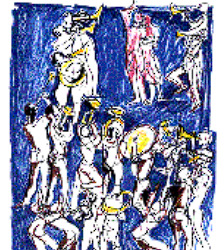
At that moment, as if out of nowhere, a band appeared, playing nothing but wind instruments and drums. It was made up of kids from all parts of the city and, as it happened, they were playing together for the first time. They struck up "Porta Romana bella, Porta Romana" in samba beat. I've never heard anything played so out of tune, but it was the most beautiful music Franca and I had ever heard.
The day it was announced that I was to be awarded the Nobel Prize Ifound myself in front of the theatre on Via di Porta Romana in Milan where Franca, together with Giorgio Albertazzi, was performing The Devil with Tits. Suddenly I was surrounded by a throng of reporters, photographers and camera-wielding TV-crews. A passing tram stopped, unexpectedly, the driver stepped out to greet me, then all the passengers stepped out too, they applauded me, and everyone wanted to shake my hand and congratulate me … when at a certain point they all stopped in their tracks and, as with a single voice, shouted "Where's Franca?". They began to holler "Francaaa" until, after a little while, she appeared. Discombobulated and moved to tears, she came down to embrace me.
Believe me, this prize belongs to both of us.
Thank you.
Translated from Italian by Paul Claesson
#tumblr users who joke about 'jester's privilege' you are obligated to take it from a real clown#dario fo#theatre
10 notes
·
View notes
Note
Romano 9?
I have a few headcanons about his past indeed.
I think he was born during Trajan's reign, somewhere between 98-117 AD (probably closer to 98)
He was a mama's boy, I will fight people on this
Compared to other patrician children, he had a very close and warm relationship with Rome when he was around, it was easy to call him spoiled
He was very well educated, even if he wasn't always particularly dedicated to his studies. Particularly adept at languages and mathematics (that Arabic influence later on further encouraged this)
I think that math factor helped him get into architecture and sculpting later. He just seems like he'd be into making utilitarian things pretty, everything as a work of art you know?
When he got to a certain physical age he would occasionally accompany Rome when he traveled to survey the provinces or the military on the frontier
Aside from this travel, Rome coddled him and lot and he was not well-prepared for the Fall of Rome. How could anyone defeat his invincible father after all?
I know it was unlikely, but I headcanon that he was present in Rome on the verge of its fall. Rome sent him to flee, and it made it all the way back to Naples. However, he was captured and held hostage by the Ostrogoths until Justinian's Reconquista when his mom was finally able to get him back
I think this experience is partially what made him so prickly later in life, and was a factor in him deciding to break off from the Byzantines a century or so later
This is random and well into the Middle Ages, but I think that he got really into falconry. This is because Frederick II of Sicily was a particularly famous falconer and wrote a book called The Art of Hunting with Birds
That is all I have off the top of my head for now!
10 notes
·
View notes
Text
Events 9.7 (before 1930)
70 – A Roman army under Titus occupies and plunders Jerusalem. 878 – Louis the Stammerer is crowned as king of West Francia by Pope John VIII. 1159 – Pope Alexander III is chosen. 1191 – Third Crusade: Battle of Arsuf: Richard I of England defeats Saladin at Arsuf. 1228 – Holy Roman Emperor Frederick II lands in Acre, Israel, and starts the Sixth Crusade, which results in a peaceful restoration of the Kingdom of Jerusalem. 1303 – Guillaume de Nogaret takes Pope Boniface VIII prisoner on behalf of Philip IV of France. 1571 – Thomas Howard, 4th Duke of Norfolk, is arrested for his role in the Ridolfi plot to assassinate Queen Elizabeth I of England and replace her with Mary, Queen of Scots. 1620 – The town of Kokkola (Swedish: Karleby) is founded by King Gustavus Adolphus of Sweden. 1630 – The city of Boston, Massachusetts, is founded in North America. 1652 – Around 15,000 Han farmers and militia rebel against Dutch rule on Taiwan. 1695 – Henry Every perpetrates one of the most profitable pirate raids in history with the capture of the Grand Mughal ship Ganj-i-Sawai. In response, Emperor Aurangzeb threatens to end all English trading in India. 1706 – War of the Spanish Succession: Siege of Turin ends, leading to the withdrawal of French forces from North Italy. 1764 – Election of Stanisław August Poniatowski as the last ruler of the Polish–Lithuanian Commonwealth. 1776 – According to American colonial reports, Ezra Lee makes the world's first submarine attack in the Turtle, attempting to attach a time bomb to the hull of HMS Eagle in New York Harbor (no British records of this attack exist). 1812 – French invasion of Russia: The Battle of Borodino, the bloodiest battle of the Napoleonic Wars, is fought near Moscow and results in a French victory. 1818 – Carl III of Sweden–Norway is crowned king of Norway, in Trondheim. 1822 – Dom Pedro I declares Brazil independent from Portugal on the shores of the Ipiranga Brook in São Paulo. 1856 – The Saimaa Canal is inaugurated. 1857 – Mountain Meadows massacre: Mormon settlers slaughter most members of peaceful, emigrant wagon train. 1860 – Unification of Italy: Giuseppe Garibaldi enters Naples. 1863 – American Civil War: Union troops under Quincy A. Gillmore capture Fort Wagner in Morris Island after a seven-week siege. 1864 – American Civil War: Atlanta is evacuated on orders of Union General William Tecumseh Sherman. 1901 – The Boxer Rebellion in Qing dynasty (modern-day China) officially ends with the signing of the Boxer Protocol. 1903 – The Ottoman Empire launches a counter-offensive against the Strandzha Commune, which dissolves. 1906 – Alberto Santos-Dumont flies his 14-bis aircraft at Bagatelle, France successfully for the first time. 1907 – Cunard Line's RMS Lusitania sets sail on her maiden voyage from Liverpool, England, to New York City. 1909 – Eugène Lefebvre crashes a new French-built Wright biplane during a test flight at Juvisy, south of Paris, becoming the first aviator in the world to lose his life piloting a powered heavier-than-air craft. 1911 – French poet Guillaume Apollinaire is arrested and put in jail on suspicion of stealing the Mona Lisa from the Louvre museum. 1916 – US federal employees win the right to Workers' compensation by Federal Employers Liability Act (39 Stat. 742; 5 U.S.C. 751) 1920 – Two newly purchased Savoia flying boats crash in the Swiss Alps en route to Finland where they were to serve with the Finnish Air Force, killing both crews. 1921 – In Atlantic City, New Jersey, the first Miss America Pageant, a two-day event, is held. 1921 – The Legion of Mary, the largest apostolic organization of lay people in the Catholic Church, is founded in Dublin, Ireland. 1923 – The International Criminal Police Organization (INTERPOL) is formed. 1927 – The first fully electronic television system is achieved by Philo Farnsworth. 1929 – Steamer Kuru capsizes and sinks on Lake Näsijärvi near Tampere in Finland. One hundred thirty-six lives are lost.
0 notes
Text
Sicily: An Island at the Crossroads of History. Ch. 11- Napoleon, Nelson, and the Hamiltons
The title of the chapter refers to Captain Nelson, the great English Admiral, William Hamilton, the English statesman, and of course, everybody's favorite rampaging French warmonger- Napoleon Bonaparte.
There was, at this time in Europe, a new sense of doing away with monarchy. Or if the monarchy was retained, it would be as the head of a more republican state. The idea of an absolute monarchy was losing its grip on Europe and there were discussions.... and more.... about this all over.
Napoleon had invaded Italy in 1795 and quickly established control over all of Piedmont and Lombardy. He then overthrew the Venetian republic and handed it to Austria. Napoleon decided to attack Egypt but was hung up there after Nelson managed to catch his fleet and win the battle. Napoleon and the French were a terror on land, but the English navy pretty much ruled the sea.
At Naples, where fear of the French had taken hold, Nelson was held as a hero and welcomed by Ferdinand and the Hamiltons, who were the British envoys to Naples.... er, the Kingdom of the Two Sicilies.
But the French, back on the European continent after the setback in Egypt, were already threatening Rome and it looked like Naples would be next. Ferdinand and the royal court ditched Naples and fled for Palermo. The nobility welcomed him, but again, the people were largely indifferent.
When the French troops did reach Naples, they were attacked by a mob, but that was put down after a few months.
In Palermo, things had gotten steadily worse with the war and food cost was spiraling upward. Frederick knew the barons would act in self-interest. Clearly, the fever for a more democratic type of rule had reached Sicily as well. Surrounded by difficulty, he wrote: "The people and clergy might let us leave if we promised to agree to the establishment of a republic. But the nobility would oppose our departure because they would be ruined and they fear the democratization of the country."
But a Cardinal Fabrizio Ruffo came to the rescue, raised an army and went to Naples to stop both the advance of the French... and Italian republicanism. He was successful and drove the French out.
Ferdinand, however, had come to grips with the fact that he had enemies in Naples. He therefore refused to ever set foot there again.
In his greatest gift to Sicily, he invited Edward Jenner, the English doctor pioneering vaccines, to the island in 1802 and had the vaccines made mandatory.
The chapter was titled Napoleon, Nelson, and the Hamiltons. Much of the chapter was dedicated to the rise of Emma Hart, a renowned beauty (she was painted several times by the artist George Romney, and she was an absolute stunner), from actress to wife of William Hamilton, then to mistress of Admiral Nelson; and the English part to play in the politics between Napoleon, Ferdinand, and Sicily. Much of it I didn't find it particularly relevant, other than in the broader political background. Of course, this is fairly common in a history of Sicily, since the major decisions about the island were usually decided off Sicily by people who weren't Sicilian.
0 notes
Text
Rosa Ponselle sings "Violetta" in this January 5, 1935 performance of Verdi's LA TRAVIATA at the old Metropolitan Opera House in New York City.
Broadcast commentary is provided by Milton Cross.
Tenor Frederick Jagel sings Alfredo and baritone Lawrence Tibbett sings the role of Alfredo's father Germont.
Ettore Panizza conducts the Metropolitan Opera Chorus and Orchestra.
Ponselle on her reaction to the New York critics and to this broadcast: “In the Letter Scene, when I heard it again I said to myself, ‘Come on, Rosa, you could do better than that!’ I just didn’t put enough of myself into it that day. The ‘Libiamo ‘wasn’t one of my best. I don’t like the ‘Amami Alfredo’ either—it’s not dramatic enough, not at all like I usually did it. But I like the way the first act came out, especially ‘Ah! Fors e Lui’ and ‘Sempre Libera’ and of course the scenes with Tibbett as the father the death scene, too. I was pleased with that. I took that from Gemma Bellincioni. They say she was Verdi’s favorite Violetta. I worked with her [in Naples] when I was preparing the role.” Her reaction to the New York reviews of her Violetta: “I don’t care about critics. Audiences are the ones who matter, not the critics.”
#classical music#opera#music history#bel canto#composer#classical composer#aria#classical studies#maestro#chest voice#radio broadcasting#radio broadcast#broadcast#Metropolitan Opera#Met#Giuseppe Verdi#La Traviata#Rosa Ponselle#dramatic soprano#soprano#classical musician#classical musicians#classical history#historian of music#musician#musicians#diva#prima donna#opera history
0 notes
Text

I posted 62 times in 2022
That's 62 more posts than 2021!
18 posts created (29%)
44 posts reblogged (71%)
Blogs I reblogged the most:
@bloodsoakedtooth
@misslavenderlady
@patient1666074
@xxx-wounded-angel-xxx
@starthelostboys
I tagged 21 of my posts in 2022
#the lost boys 1987 - 12 posts
#tlb 1987 - 12 posts
#the lost boys fanfiction - 9 posts
#the lost boys - 9 posts
#dwayne the lost boys - 7 posts
#poly!lost boys - 6 posts
#the lost boys dwayne - 6 posts
#paul the lost boys - 6 posts
#david the lost boys - 6 posts
#marko the lost boys - 5 posts
Longest Tag: 41 characters
#the things i do for my gay vampire babies
My Top Posts in 2022:
#5
David Headcanons

Born as Frederick of Hesse-Darmstadt on the 21st of December, 1863 in Osnabrück, Germany
Is Max’s nephew (Charles of Hesse-Darmstadt)
Speaks German and English (learnt in that order)
Did not get to choose his name. His uncle chose it for him
Turned into a vampire after the death of his fiancée by Max
24 notes - Posted September 28, 2022
#4
💜Laddie💜

Dream Job - Author
Hobbies - Knitting, Ballet, and Drawing
Dream Travelling - Ukhta, Russia / Naples, Italy / Florence, Italy
Activities with friends - Surfing, Singing, and Dancing
Activities alone - Skateboarding
Favorite sport - Swimming
Favorite TV show - Thundercats
Favorite movie - Raiders of the Lost Ark
Favorite animal - Jaguar
Favorite food - Carrot cake
If he could meet anyone - Emmeline Pankhurst
Free time - Knitting with Dwayne
Goal for 1988 - Learn to communicate better with others
Favorite book - Anna Karenina by Lev Nikolayevich Tolstoy
Things that make him happy - Going on rides on the boardwalk with Marko, When Dwayne sings in Komi, Being silly with Paul, Dancing with Star, Pressing flowers with David, Watching Movies with Max, and surfing with Michael
✨ Laddie did a questionnaire at school ✨
30 notes - Posted December 6, 2022
#3
Nicknames The Lost Boys Give Laddie

All
Buddy
Trouble
Tiny
Mini
David
Mausebär
Schnucki
Biene
Paul
Gordito
Peque
Chiquito
Pollito
Mijo
Papi
Marko
Piccolino
Bambi
Bambino
Dwayne
Lev
Bärchen
Grinsebär
Sonnenschein
Herzblatt
88 notes - Posted October 3, 2022
#2
The Lost Boys when somebody hurts their mate:

103 notes - Posted November 20, 2022
My #1 post of 2022
Nicknames The Boys Would Give You

Marko
Amore
Madre
Caro
Paul
Babe
Pumpkin
Cariña
Dwayne
Sweetheart
Darlin'
Baby
Honey
Angel
Princex
Sunshine
Love
Basically anything but your name
David
Kitten
Cherry
Liebling
Doll
191 notes - Posted September 28, 2022
Get your Tumblr 2022 Year in Review →
11 notes
·
View notes
Text
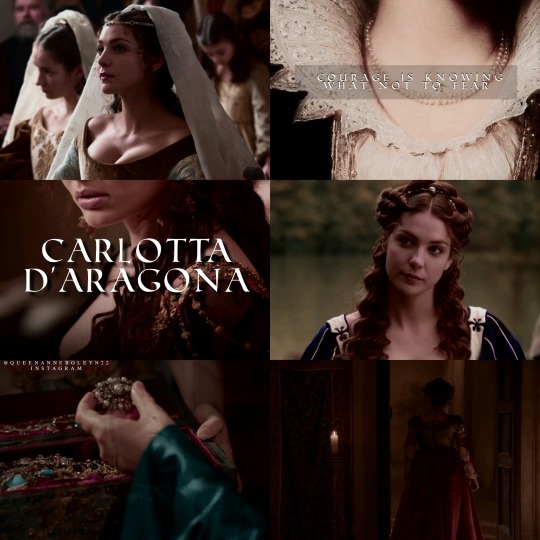
"Anxious not to offend the pope, Federigo temporized: ‘It seems to me,’ he was reported by the Venetian ambassador to have said, ‘that the son of a pope, who is also a cardinal, is not the ideal person to marry my daughter. If the Pope can make it possible for a cardinal to marry and keep his hat, I’ll think about giving him my daughter.’ Nor was his daughter happy with the proposed match; not only was Carlotta in love with a Breton nobleman, but she was also determined not to marry "a priest who was the son of a priest."
Charlotte of Naples (c. 1479/80 – 1506), also known as Charlotte of Aragon and Princess of Taranto, was the eldest daughter and eventual heiress of King Frederick of Naples. Although her father was dispossessed of his kingdom, her descendants, the House of La Trémoïlle maintained their dynastic claim in exile. Daughter of the Neapolitan king's first marriage to Anne of Savoy, a granddaughter of Charles VII of France, Charlotte was married to Guy XVI, Count of Laval, head of one of Brittany's most powerful noble families. Following her mother's death which occurred shortly after her birth, Charlotte was raised in France and brought up at the French court. One of her suitors was Cesare Borgia. Charlotte refused him, and instead on 10 June 1500 married Guy XVI de Laval, Count of Laval. Charlotte and Guy had: Catherine, married Claude I of Rieux Anne, married Francois de la Trémoïlle Francois, d.1522.
In the year following Charlotte's marriage, her father lost his throne and freedom to France in war. Her brother, Ferdinand of Aragón, Duke of Calabria, fled to Spain in 1504, whence he did not return. On his death without legitimate descendants in Valencia in 1550, Charlotte was long dead and France had lost the crown of Naples to another branch of the Aragonese dynasty. Nonetheless her issue took up the fruitless pretence to the crown, while pursuing their interests in Brittany and France. Charlotte is posthumously attributed the title, Princess of Taranto, which had been borne by Neapolitan heirs apparent.
"While the ruling families of Milan and Naples should have been frightened and undoubtedly were, for Cesare Borgia the new situation was rich in promise. He remained enthralled by the thought of a princess he had never met, Don Fadrique of Naples’s daughter Carlotta. What he knew of her made her seem the perfect bride: eldest child of a king whose only son was still a boy; great-granddaughter of a king of France; a lady-in-waiting at the French court, where she had been sent to be brought up when her mother died not long after her birth. The man who married her could be confident of becoming one of the leading lords of Naples and of being accepted into the French royal family. And only one life, that of a very young brother-in-law, would stand between Carlotta herself and the Neapolitan crown. Soundings were taken in Naples, and the results were not encouraging: Don Fadrique showed no interest in marrying his daughter to Cesare. The fact that Cesare was a cardinal of the Church is itself sufficient to explain the king’s wariness, but beyond that the summer that Cesare had spent in Naples had obviously done nothing to enhance his attractiveness as a possible son-in-law. Whatever his opinion of Cesare personally, Don Fadrique probably thought that his father Ferrante and brother Alfonso II had bestowed quite enough Neapolitan riches on various Borgias, especially in connection with Sancia’s marriage to Jofrè. But with a new king of France now in the picture, and Carlotta virtually that king’s ward, Don Fadrique’s feelings would not necessarily decide the issue. If Louis could be won over, Don Fadrique might find it difficult not to go along."
"Now it was only a matter of time before he was released from his vows and took Carlotta of Aragon as his wife. His wish to marry Carlotta had nothing to do with love - the princess was being educated at the French court, and Cesare had never seen her. But Carlotta was the legitimate daughter of a king. Marriage to her would make Cesare Prince of Altamura and Taranto, and these territories would provide him with an income sufficient to compensate for the 35,000 ducats a year he was surrendering along with his cardinal’s hat."
Source: "The Borgias: The Hidden History Book" by G. J. Meyer
#perioddramaedit#history#edit#history edit#carlotta d'aragona#charlotte of aragon#charlotte of naples#naples#italiansedit#italian history#cesare borgia#anne of brittany#charles vii#french history#women in history#italian renaissance#renaissance italy#women of renaissance#renaissance#donne della storia#donne nella storia#donne italiane#16th century#Guy XVI de Laval#taranto#frederick of naples#house of aragon#anne of savoy#House of La Trémoïlle#paloma bloyd
62 notes
·
View notes
Text
Friday 16 August 1833
7 ¾
1 35
fine morning F66° at 8 – looking over carriage seat papers-box etc. breakfast at 10 in ¾ hour - Madame de Bourke came at 12 for near ½ hour - off at 1 ½ to rue St. V- taking Eugenie and Thomas and all the things but plate which I determined to take with me - Eugenie took inventory of crockery pans etc and furniture - Thomas took my parcel to M. Audoin – the book Irishman in search of a religion by Thomas Moore the post and my [?] to the 2 razors for M. Geoffoi [Geoffroy] St. Hilaire – forgot to send the last quittance of my rent up to May next year – sent home the servants at 4 20 – I busy over 1 thing or other an hour after – then went to the Jardin des plantes called and sat 10 minutes with poor old M. Desfountaines now blind from cataract, and looking very old and infirm – very glad to see me – gave him one of my Rogers 4 blade mother of pearl penknives with which (with attention) he seemed flattered and pleased – home at 6 20 – dinner at 6 ¾ - dressed – at Lady Gordons’ from 8 ½ to 10 10 – a Mr. Clifford (a Herefordshire man) stammering and oddish, came in between 9 and 10 - to write to Lady S- poste restante à Naples - she allows her maid 2/6 English or 3fr. French a week for washing - letter this morning sent by Mrs. Heneage from Lady VC- (while Madame de Bourke was with me) 3 pages of ½ sheet wrote as I wished to hear from her before leaving here - hoped to hear from me from Copenhagen - Lady S- de R- heard my last letter to lady S- quite screamed when she heard of my meeting Mrs. Frederick Byng - Lady G- told me tonight she was his mother’s maid and lived with him before marriage but had conducted herself particularly well ever since - Mrs. Graham heir of Rue Pépinière lived with Mr. G- 1st Mr. Fazakerley took her in Spain and made him marry her and Lady ...........visit her and everybody else - Mrs. G- a French woman a milliner but saying her family was reduced by the 1st revolution - Vere says not a word of the coffee pot or of Mrs. Heneage odd enough to forget both probably she did not choose to remember says she knows nothing of Lady G- V- has pride enough does not want much of me nor will she be much to troubled by me - meant to have gone to bed very early but pothering over Eugenie’s accounts till after 12 - fixed with Madame de B- to call for Mademoiselle Ferral at 3 tomorrow - can never get off - shall probably delay till Sunday afternoon - wrote this evening par petite poste to say Miss L- was sorry she was out when Mr. L- called on Wednesday engaged all yesterday out all today - off at 12 tomorrow - should be glad to see him if he could call for a few minutes at 11 in the morning - Monsieur Monsieur Lister Hotel de la place de l’Odéon – fine day and showers alternately – F66 ½° now at 11 35 p.m. till 1 ¼ writing copy of note to Madame de Bourke to put off till Sunday
3 notes
·
View notes
Text
Marshal Augereau
This is a contemporary portrayal and short biography of Marshal Augereau by one of his contemporaries, who served under him starting in 1804. The link to the original text is at the end of this post. His name was Bro. Any number of jokes could be imagined using his family name. At the time, this eventual baron and general would not have imagined what "bro" would come to represent. For myself, it's the immortal plea, "Don't taze me, bro!"
But anyway, back to Augereau. As I'm wont to do, when translating I am more concerned with conveying meaning as accurately as I can than with a close word-for-word rendition. I have also included some short clarifications in square brackets.
Augereau (Charles-Pierre) [by opposition to Jean-Pierre, the marshal's brother] était un homme de quarante-cinq à cinquante ans. De taille moyenne, ses épaules larges et son cou énorme dénotaient sa force musculaire. Le regard était perçant dans les yeux gris. Véhément dans ses discours et criard dans ses ordres, ses lèvres minces tremblaient lorsqu'il parlait. Il avait le menton osseux, le nez très long, le front étroit, ce qui n'empêchait pas qu'il fût très intelligent, fin politique et prompt à profiter de tous les avantages que lui offraient la guerre. Il était soldat depuis 1774, et que d'aventures ce fils de petit marchand, devenu maréchal de France comme M[onsieur] de Villars eût à nous raconter! Ses champs d'action avaient été nombreux. Enrôlé au régiment Clark-Irlandais, insulté, battu, malade, une femme de grande noblesse lui achète, trois mille livres, son congé en 1776. Il va mettre en ordre la comptabilité de cette dame et s'évade une nuit du château, court à Mayence pour se vendre très cher aux recruteurs de Frédéric II. Il fait, dans le régiment de Brunswick, deux guerres contre l'Autriche. Il abandonne Frédéric, va guerroyer sous les drapeaux de Catherine, contre les Turcs, déserte, revient en France, se fait admettre aux dragons de Damas, s'ennuie, obtient d'être envoyé à Naples comme instructeur, devient maître d'armes, donne quelques soufflets à un courtisan, se cache à bord d'un navire, débarque à Marseille... La Révolution le trouve prêt à tout risquer. Il gagne des grades, sert et étonne Bonaparte, et reçoit en janvier 1804 le commandement du camp de Brest. Voilà l'homme étrange, mais courageux, habile, plein de talents que je voulais servir de toutes mes forces... et qui devait m'accorder son amitié [...].
Augereau (Charles-Pierre) [as opposed to Jean-Pierre, the marshal's brother] was a man between forty five to fifty years of age [in early 1804 he would have been 46]. Of average height, his broad shoulders and enormous neck were an indication of his muscular strength. He had piercing grey eyes. Vociferous in speech and shrill in giving out orders, his thin lips trembled as he spoke. He had a bony chin, a very long nose, a narrow forehead [a high or broad forehead was then believed to be an indication of intelligence], which did not preclude that he was very intelligent, a shrewd politician, and quick to profit from all advantages that war could provide him. He had been a soldier since 1774, and what tales of adventure this son of a modest merchant, now a Marshal of France like M[onsieur] de Villars, might have told us! He had been active in many battlefields. Enlisted in the Clark-Irlandais Regiment, insulted, battered, ill, in 1776 a woman of high nobility bought out his dismissal for 3,000 livres. He will sort out this lady's accounting books, but one night he escapes from her château, runs off to Mainz to hire himself out to Frederick the Second's recruiters for a very high price [meaning Frederick the Great of Prussia I believe]. As a member of the Brunswick Regiment, he fought two wars against Austria. He abandons Frederick [he deserted!], joins Catherine the Great's army against the Turks, deserts this post, comes back to France, gets himself accepted into the dragons of Damas [?], becomes bored, manages to get sent to Naples as a drill master, becomes a fencing instructor, gives a few slaps to a courtier, hides on board a ship, lands at Marseilles... By the time of the Revolution, he was ready to take every risk. He rises in rank, serves under Bonaparte and impresses him, and is given in 1804 the command of the Camp at Brest [in prevision of an invasion of England that never took place]. This is the strange, but courageous, clever man of many talents I keenly wanted to serve to the very best of my abilities... and who became my friend [...].
Mémoires du général Bro (1796-1844) / recueillis, complétés et publiés par son petit-fils le Bon Henry Bro de Comères
p. 29-30.
Northermariette again: Augereau was an incorrigible braggart, apparently, and some have doubted the accuracy of his reported adventures. Some say he never went as far as Russia or Turkey. Nevertheless, his pre-Revolution life was colourful to say the least, and what Bro reports is only a fraction of it. He left out the seducing of servant girls part, the duelling part, the dancing master part, the elopement part...
About Bro's Mémoires: I did not read the entirety of this book, because the more I read it, the less I liked the author. He describes some atrocities and some humiliations visited on the lands his army conquered. That Napoleon's troops committed such things is not surprising: wartime service does not inspire only noble acts, quite the contrary. What bothered me about Bro is that even though he writes that what he describes is nothing to be proud of, at the same time he often goes on to state that the individual and/or the country had it coming, or else he seems to enjoy relating these acts a little too much to my taste.
30 notes
·
View notes
Photo

Maximilian II, King of Bavaria, whose decease took place on the 10th of March, was the eldest son of Louis I, King of Bavaria, by the Princess Theresa, daughter of Frederick, Duke of Saxe-Altenburg. He was born on Nov. 28, 1811, was educated at the University of Gottingen, where he showed himself a laborious student, and afterwards he mixed as little as possible in public affairs until the abdication of his father (March 21, 1848) called him, very unwillingly, from his books, and placed him on the throne. He conceded many liberal institutions to his subjects, and was deservedly popular among them, but his real taste and abilities were rather for literature than for government, and his habitual associates were men of letters, and not statesmen. He, however, entered very warmly into the questions between Germany and Denmark, and lent all the influence of his Government to the furtherance of the Augustenburg succession.
The late king was a frequent traveller. He visited, in early life, Italy and Greece, and in 1853 he visited Naples and Sicily, and in 1857 Paris. But his chief honour was that he attracted to Munich the greatest and noblest intellects of Germany. Ranke was appointed to preside over a commission ordered to make researches into the history of the country; Liebig was made professor of chemistry; Siebold professor of physiology, anatomy, and zoology at the Munich Institute; and among other great men whom he patronized may be named Pfeiffer, Carrière, and Geibel.
King Maximilian married, on the 12th of October 1842, the Princess Marie, daughter of the late Prince William of Prussia, by whom he left two sons; Louis (now King Louis II) born Aug. 25, 1845, and Otho, born April 27, 1848. One of his brother is Otho, ex-King of Greece; a second is Luitpold, the son-in-law of the displaced Grand Duke of Tuscany; and his sister Aldegonde is the wife of the expelled Duke of Modena.
Chronicle 1865
8 notes
·
View notes
Photo

The Duke of Brunswick Dies There was another cause for anxiety: the Princess of Wales had announced that she was returning to England.
#caroline of brunswick queen of the united kingdom (princess of wales)#francis I king of the two sicilies#frederick william duke of brunswick#george IV (prince of wales and prince regent)#george keith elphinstone 1st viscount keith#maria isabella of spain queen of the two sicilies#mary duchess of gloucester#naples#princess charlotte of wales#prinny&039;s daughter: a biography of princess charlotte of wales#quatre bras#the delicate investigation#the hon.margaret mercer elphinstone#the napoleonic wars#thea holme
0 notes